| |
| |
 |
 |
| |
 |
|
@{mv_date_MMM d, yyyy}@ |
|
| |
 The new database is part of a goal to strengthen and support the successful coexistence of organic, conventional and genetically modified crops.
» Read more...
The new database is part of a goal to strengthen and support the successful coexistence of organic, conventional and genetically modified crops.
» Read more...
The program is the first of its kind in Canada and will teach students the essentials of agriculture communication and marketing.
» Read more...
Plus, Saskatchewan is enjoying the spoils of ideal harvest weather.
» Read more...
|
| |
 |
 |
| |
|
| |
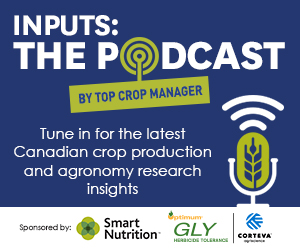
Grasshoppers, flea beetles, lygus bugs, grasshoppers, crickets – Tyler Wist has seen all of these and more in recent years. Wist, a research scientist and field crop entomologist with Agriculture and Agri-Food Canada in Saskatoon, is the guest on this week’s episode of Inputs, and unlike many, he’s happy to see insects show up in field crops. In this conversation, he breaks down some of the research in his pipeline, his observations from the 2022 season, and chats about Field Heroes, the program that supports beneficial insects and pollinators.
» Listen now... |
| |
|
| |
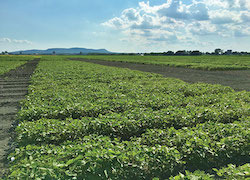 When it comes to plant breeding and the release of new varieties, understanding Canada’s regulatory landscape can be a challenge. But new guidance published by Health Canada earlier this year – which stipulates that gene-edited crops that are not considered novel can be treated like conventional crops and bypass pre-market safety evaluations – is meant to simplify the development of new varieties.
» Learn more...
When it comes to plant breeding and the release of new varieties, understanding Canada’s regulatory landscape can be a challenge. But new guidance published by Health Canada earlier this year – which stipulates that gene-edited crops that are not considered novel can be treated like conventional crops and bypass pre-market safety evaluations – is meant to simplify the development of new varieties.
» Learn more... |
| |
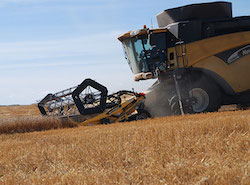 Does it make sense to apply a plant growth regulator (PGR) in winter cereals? A newly released study analyzing the effects of dose and application timings of the PGR trinexapac-ethyl (sold under the name Moddus in Canada) on loding, yield and quality of winter cereals suggests there’s a role for trinexapac-ethyl (TE) in some systems. A study ran at six locations in Western Canada between 2014 and 2017 to understand the impact of the PGR on winter wheat.
» Learn more...
Does it make sense to apply a plant growth regulator (PGR) in winter cereals? A newly released study analyzing the effects of dose and application timings of the PGR trinexapac-ethyl (sold under the name Moddus in Canada) on loding, yield and quality of winter cereals suggests there’s a role for trinexapac-ethyl (TE) in some systems. A study ran at six locations in Western Canada between 2014 and 2017 to understand the impact of the PGR on winter wheat.
» Learn more... |
| |
|
| |
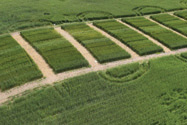 The topography of agricultural landscapes modifies the crop environment changing the fluxes of water and energy, increasing the risk to agriculture systems, and becoming more stressed under excess heat and drought. To quantify how wheat production at different topography will be affected by excess temperature and drought, broad-scale assessments of vegetation responses to drought are needed to anticipate, manage, and potentially mitigate its effects on ecosystems.
» Learn more...
The topography of agricultural landscapes modifies the crop environment changing the fluxes of water and energy, increasing the risk to agriculture systems, and becoming more stressed under excess heat and drought. To quantify how wheat production at different topography will be affected by excess temperature and drought, broad-scale assessments of vegetation responses to drought are needed to anticipate, manage, and potentially mitigate its effects on ecosystems.
» Learn more... |
|
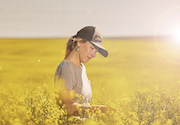 Choosing the right canola seed is the first step to success – with DEKALB® canola, you can choose from a variety of hybrids that feature high yield potential, advanced disease protection, early maturity and multiple straight cut options with quicker dry-down time and improved harvestability.
» Learn more...
Choosing the right canola seed is the first step to success – with DEKALB® canola, you can choose from a variety of hybrids that feature high yield potential, advanced disease protection, early maturity and multiple straight cut options with quicker dry-down time and improved harvestability.
» Learn more... |
| |
|
| |
|
|
| |
| |










